Fine motor skills development Normal Worksheets for Ages 4-9
7 filtered results
-
From - To
Enhance your child's fine motor skills with our expertly designed worksheets for ages 4-9. Our selection includes engaging, developmentally appropriate activities tailored to strengthen hand-eye coordination, dexterity, and precision. From tracing lines and shapes to cutting and pasting, each worksheet offers a variety of fun tasks that build essential skills required for writing, drawing, and daily activities. These printable worksheets are perfect for classroom use or at-home practice, supporting young learners’ foundational development through playful, hands-on exercises. Foster creativity and confidence in your child with our wonderful fine motor skill development resources.
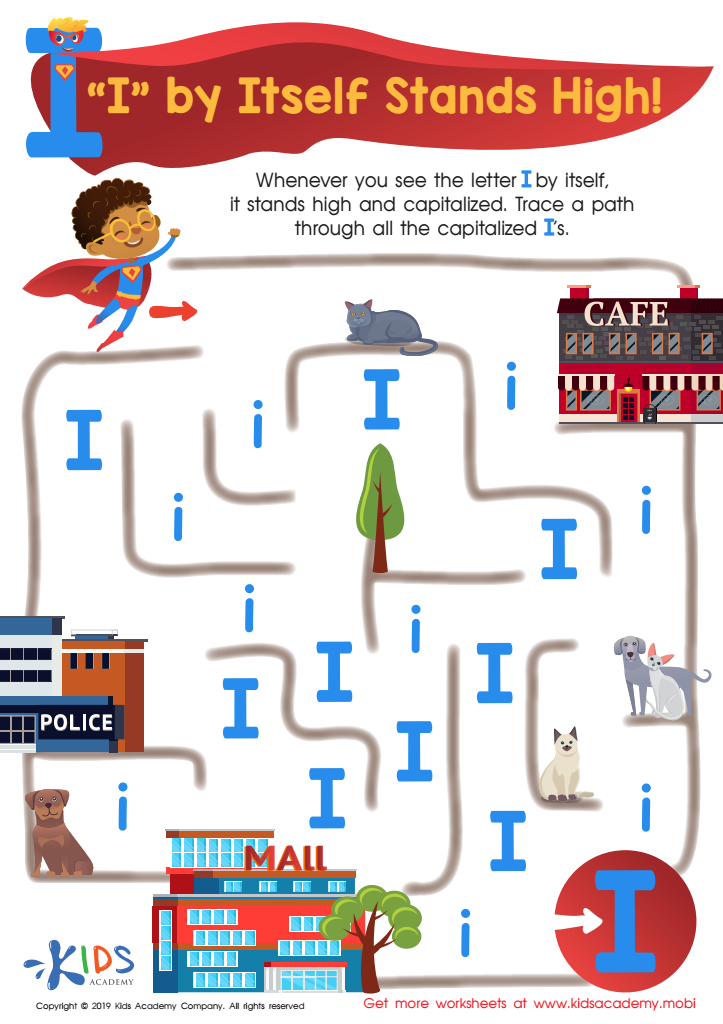

I Stands High Worksheet
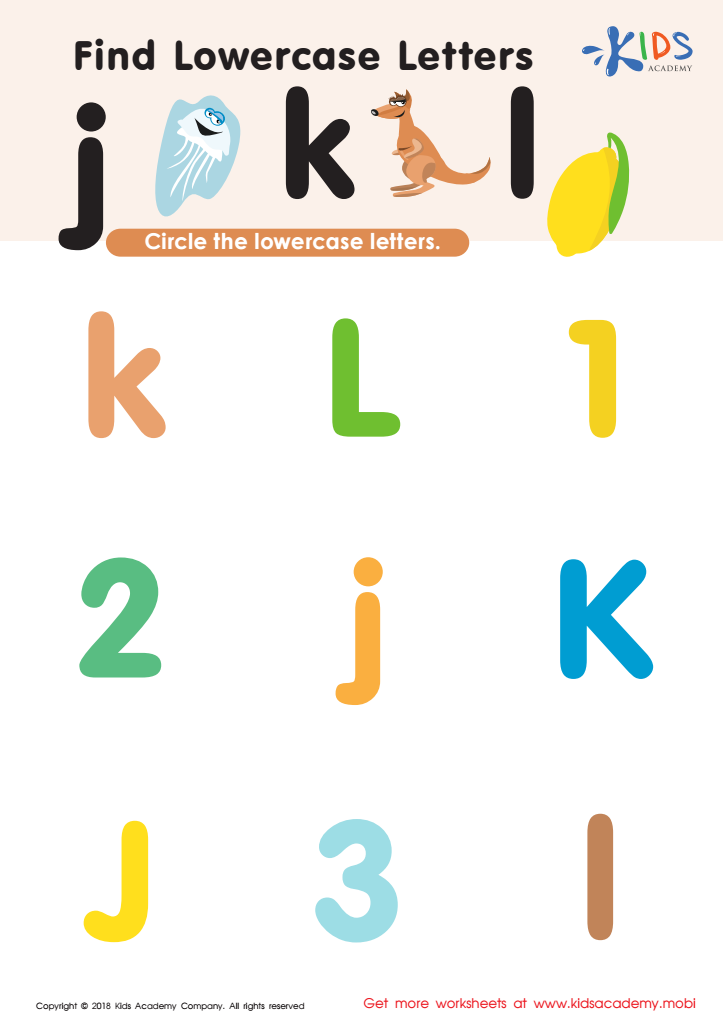

Find Lowercase Letters j k l Worksheet
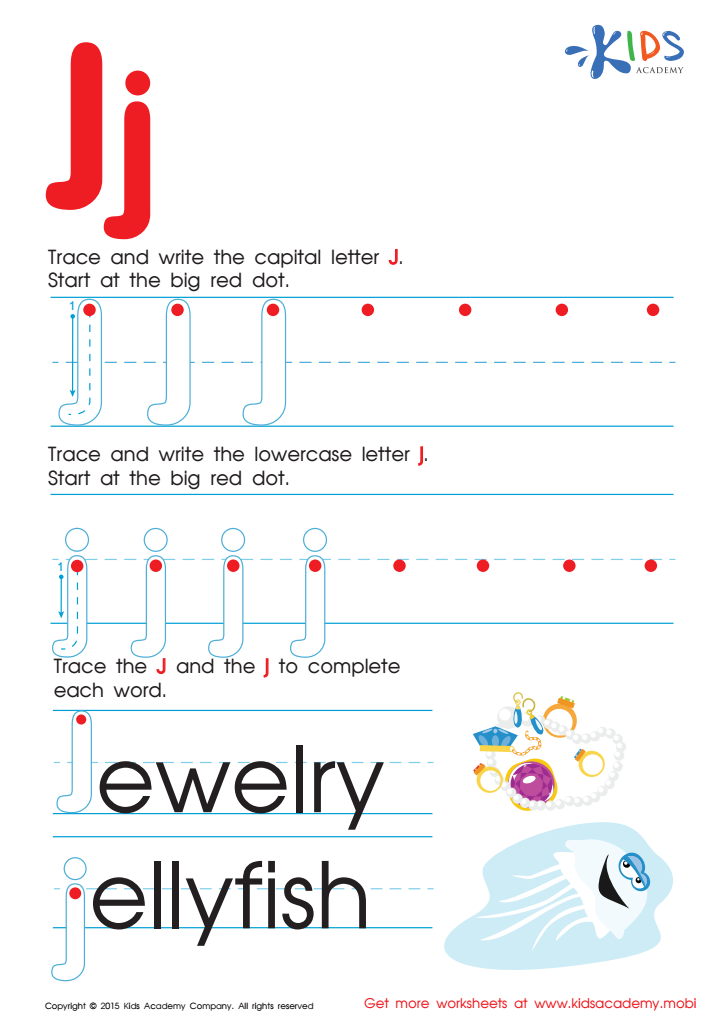

Letter J Tracing Page
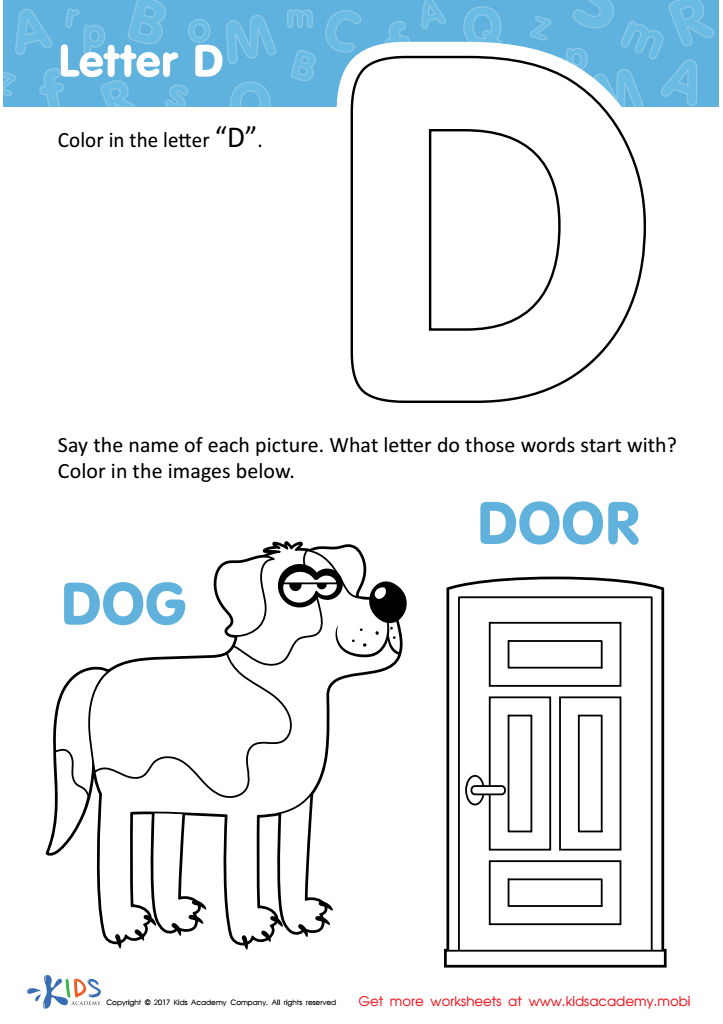

Letter D Coloring Sheet
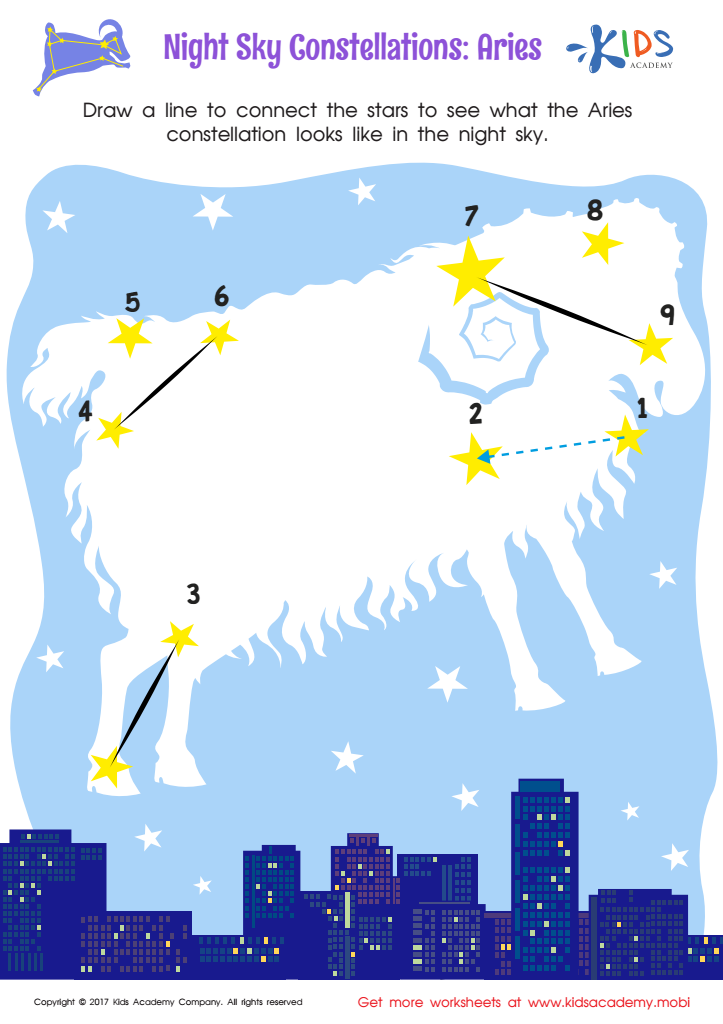

Night Sky Constellations: Aries Worksheet
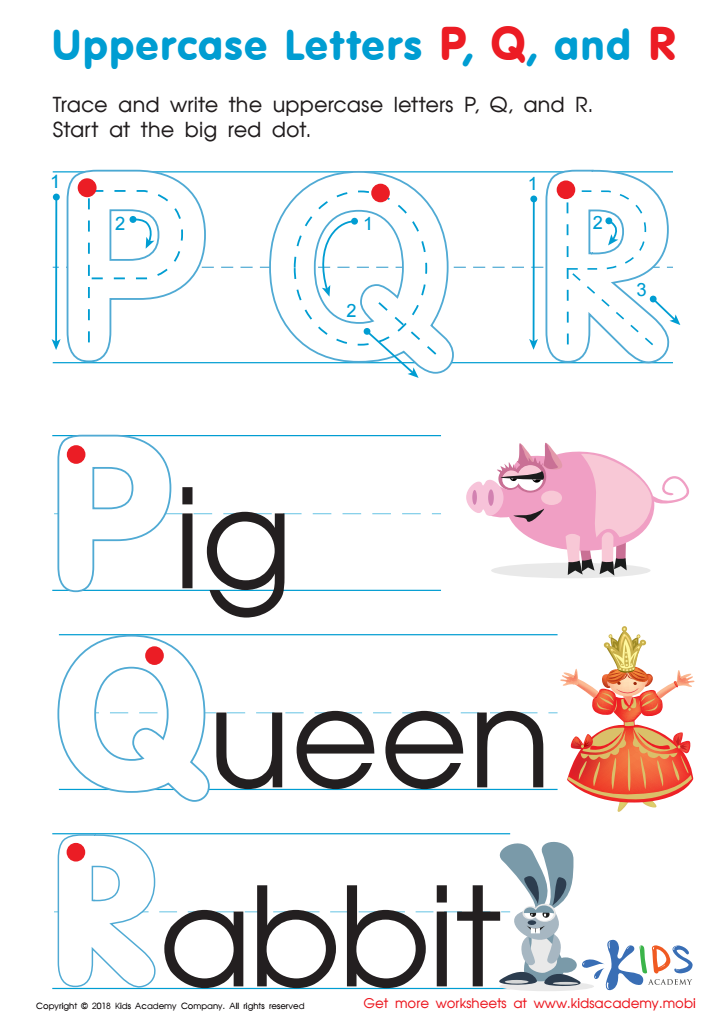

Uppercase Letters P, Q, and R Worksheet
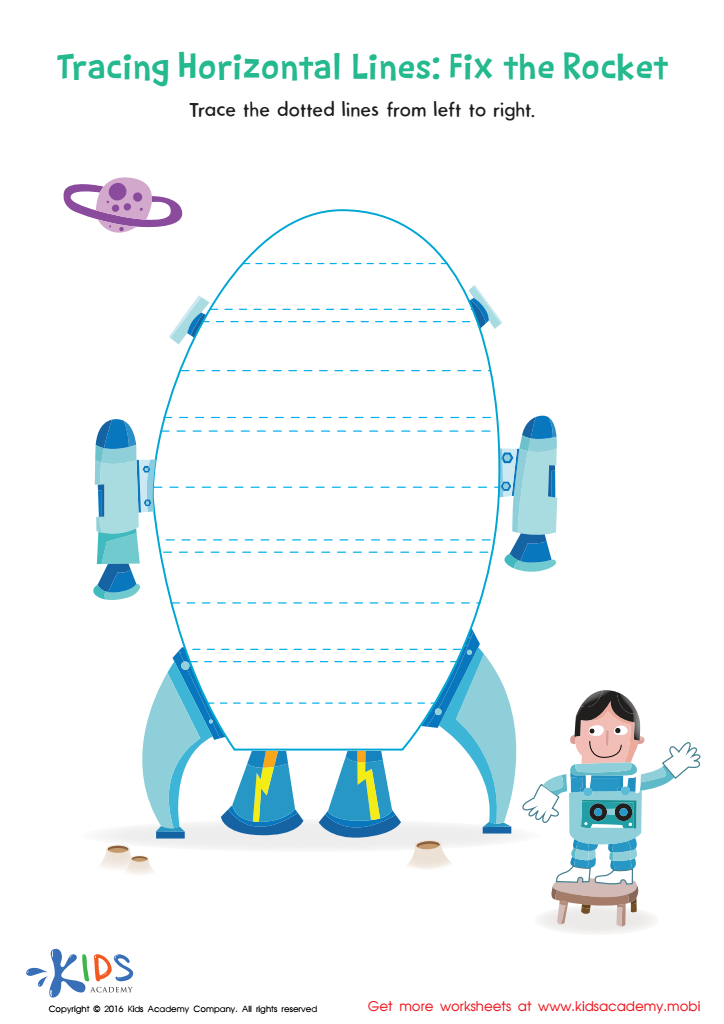

Tracing Horizontal Lines Worksheet
Fine motor skills are crucial for children ages 4-9 because they play a vital role in overall development and academic success. For one, these skills encompass the small muscle movements in the hands and fingers that enable children to perform essential daily activities like dressing, eating, and, importantly, writing. Mastery of these tasks contributes to a child's independence and self-esteem.
In the academic context, fine motor skills are indispensable for tasks such as holding a pencil, cutting with scissors, and manipulating small objects which are foundational in early education. Adequate development in this area is often linked to better handwriting, which can affect a child's ability to complete written assignments and exams. Poor fine motor skills can hinder academic performance, leading to frustration and a lack of motivation in school.
Moreover, developing these skills can also impact cognitive functions. Activities that require fine motor coordination often stimulate the brain, promoting focus, attention, and problem-solving abilities. This opens pathways for learning complex concepts more easily, such as math and reading.
Lastly, early identification and intervention for delays in motor development are easier during the ages of 4-9. Appropriate exercises and therapies can then be employed to enhance these skills, ensuring children reach their full potential in both educational settings and daily life.
 Assign to My Students
Assign to My Students















